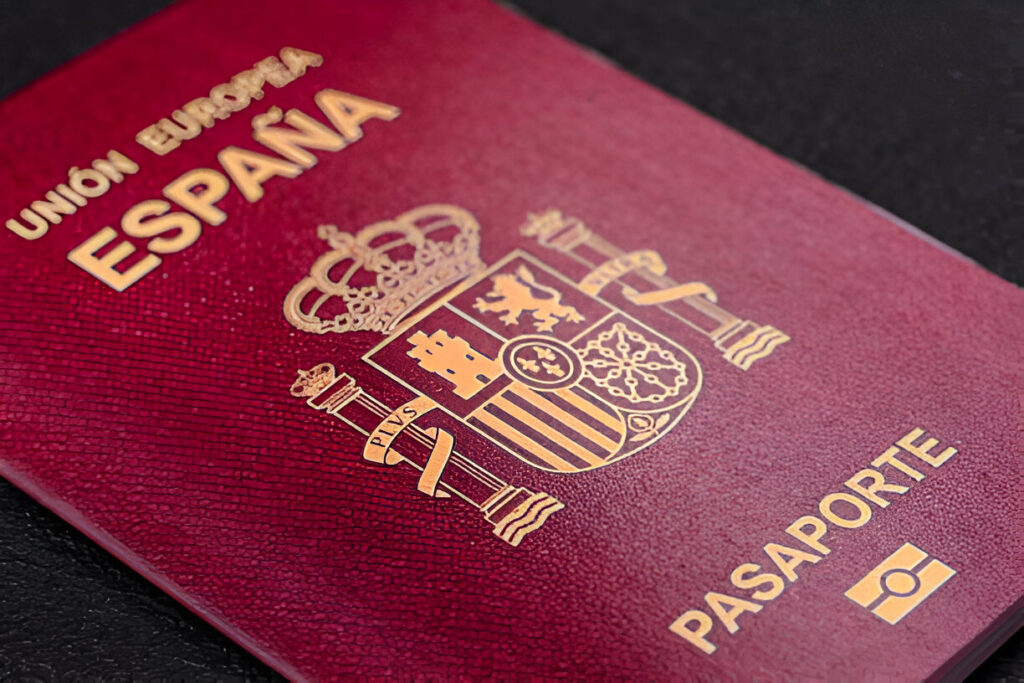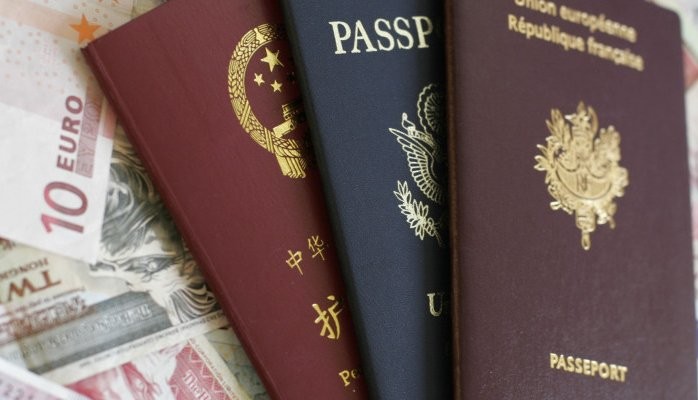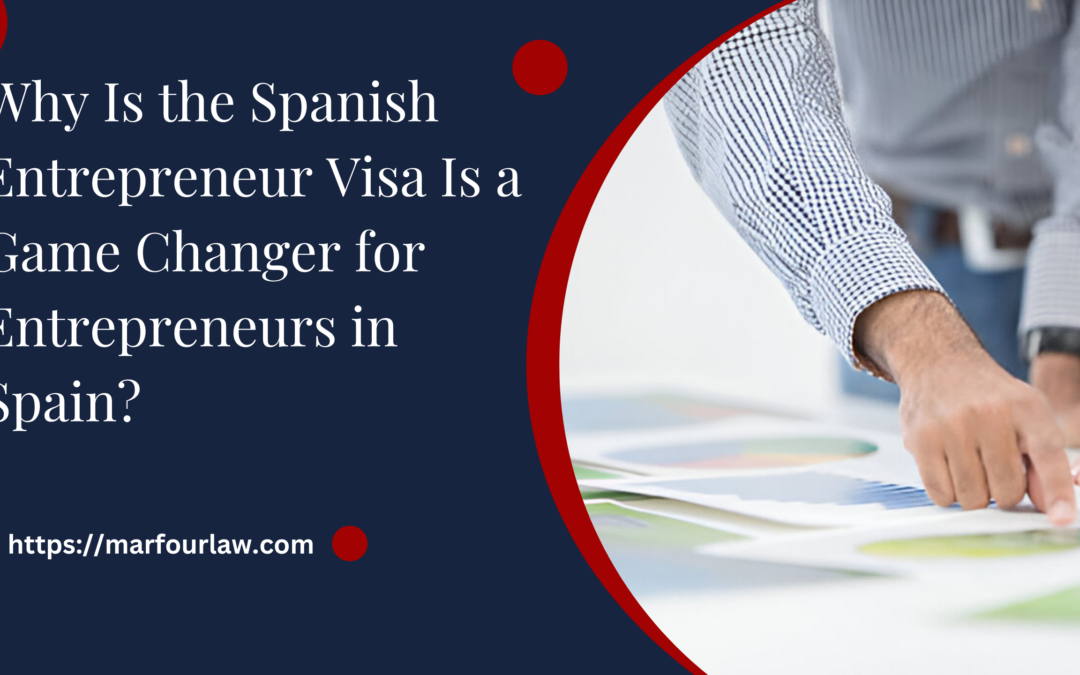If you’ve ever thought about starting a business in Spain, then you’ve likely heard of the Spanish Entrepreneur Visa. This visa offers a fantastic opportunity for non-EU citizens to live and work in Spain while building their entrepreneurial dreams. But what exactly does it entail, and is it the right fit for you? Let’s dive in and find out.
What Is the Spanish Entrepreneur Visa?
If you’re dreaming about starting a business in Spain, the Spanish Entrepreneur Visa could be your ticket to making that dream a reality. This visa, officially known as the Entrepreneur Visa or Spain Startup Visa, is designed to attract innovative businesspeople to the country. Let’s break down what it’s all about.
Who Can Apply for the Spanish Entrepreneur Visa?
So, who exactly is eligible for this visa? To put it simply, this visa is for non-EU nationals who have a solid business plan and are ready to make a positive impact on the Spanish economy. If you’ve got a unique business idea that could create jobs or offer something new to the market, you’re on the right track. The visa is aimed at those who are willing to invest in Spain and bring something fresh and innovative to the table.
What Do You Need to Qualify?
Here’s where it gets interesting. You’ll need to meet a few key requirements to qualify for this visa. First, you’ll need to present a detailed business plan. This plan should outline your business idea, how it will work, and how it will benefit Spain. You’ll also need to show that you have the financial means to support yourself and your business during its initial phase.
Moreover, your business plan needs to be approved by the Spanish government. This isn’t just a formality; it means your idea has to be innovative and have the potential to contribute significantly to the local economy. Think of it like a pitch to investors, but you’re pitching to the Spanish authorities instead.
Application Process
Getting the Spanish Entrepreneur Visa involves a few steps, but don’t let that scare you. The process begins with preparing and submitting your business plan to your home country’s Spanish consulate or embassy. If everything looks good, you can provide additional documentation, such as proof of financial stability and any relevant experience or qualifications.
Once your application is approved, you’ll receive your visa and can start your business in Spain. Remember that this visa is initially granted for one year, but it can be renewed if your business is proving to be successful.
Benefits of the Spanish Entrepreneur Visa
So, why should you consider this visa? It allows you to live and work in Spain while building your business. Additionally, Spain offers a vibrant market with plenty of opportunities, especially in cities like Madrid and Barcelona. Plus, being based in Spain means enjoying its fantastic climate, rich culture, and high quality of life.
Another perk is that you can apply for a residence permit for your family members, which means they can join you in Spain. This visa also offers a pathway to long-term residency and potentially even citizenship if your business thrives and you meet other requirements.
Key Takeaways
To sum it up, the Spanish Entrepreneur Visa is a fantastic option if you have an innovative business idea and want to make a move to Spain. It allows you to start your business while enjoying all Spain offers. Just remember to have a strong business plan and be prepared for some paperwork. If you meet the criteria, this visa could be your gateway to a new entrepreneurial adventure in sunny Spain.
Why Choose the Spanish Entrepreneur Visa?
If you’re dreaming of starting or expanding your business in Spain, the Spanish Entrepreneur Visa could be the golden ticket you’re looking for. This visa is designed for people who want to bring innovative business ideas to Spain. Let’s dive into why this visa could be a great choice for you.

A Gateway to Business Opportunities
Spain is known for its vibrant economy and welcoming business environment. With the Spanish Entrepreneur Visa, you get access to this thriving market. Whether you’re into tech startups, creative industries, or any other innovative field, Spain offers a fertile ground for your business to grow. Think of it as having a front-row seat in a booming market where opportunities are ripe.
Simplified Application Process
The Spanish Entrepreneur Visa offers a streamlined application process compared to other visas. The government has designed it to be relatively straightforward, especially for entrepreneurs demonstrating their business will contribute to the Spanish economy. This means fewer hoops to jump through, allowing you to focus more on your business and less on bureaucratic hurdles. Isn’t it nice to have a smoother path to getting your business off the ground?
Support for Innovation
Spain is eager to attract innovative businesses that can bring something new to the table. With this visa, your business idea must stand out, showing it’s not just another venture but something that could make a real impact. The Spanish government provides support in various forms, from tax incentives to access to local networks and resources. It’s like having a partner who’s rooting for your success and providing you with the tools to achieve it.
Living and Working in Spain
The visa allows you to live and work in Spain, allowing you to immerse yourself in the local culture and lifestyle. Imagine setting up your business while enjoying Spain’s beautiful weather, delicious cuisine, and vibrant culture. It’s not just about work; it’s about experiencing a new way of life while building your business.
Long-Term Benefits
Once you’re in Spain with this visa, you’re not just there for a short stint. The visa can lead to permanent residency if you meet certain conditions over time. This means your business can flourish in Spain in the long term, and you and your family can enjoy the benefits of living in this beautiful country. It’s like planting roots in a place where your business and personal life can thrive together.
In short, the Spanish Entrepreneur Visa isn’t just a permit; it’s an opportunity to dive into a new market, enjoy a supportive business environment, and experience life in Spain. If you’re ready to turn your innovative idea into reality and enjoy the perks of living in one of Europe’s most dynamic countries, this visa could be your next big step.
How do you apply for the Spanish Entrepreneur Visa?
Applying for the Spanish Entrepreneur Visa can seem complex, but breaking it down into manageable steps can make it easier. Here’s a straightforward guide to help you navigate the application process.
Develop a Solid Business Plan
Before you even start the application process, you need a well-thought-out business plan. This plan should clearly outline your business idea, market research, financial projections, and how your venture will contribute to Spain’s economy. Think of this as your business’s resume—it needs to showcase why your idea is valuable and how it stands out from the rest. The better your plan, the stronger your application will be.
Gather Required Documents
To apply for the visa, you’ll need to prepare a set of documents. These typically include:
- Business Plan: A detailed document outlining your business concept and financial forecasts.
- Proof of Financial Means: Evidence that you have enough funds to support yourself and your business.
- Qualifications and Experience: Documents showing your background and expertise in your field.
- Criminal Record Certificate: A certificate from your home country indicating you have no serious criminal record.
- Health Insurance: Proof of health insurance coverage in Spain.
Make sure all your documents are current and correctly translated into Spanish, if necessary. It’s like preparing for a big presentation—you want everything to be polished and professional.
Submit Your Application
You can apply for the Spanish Entrepreneur Visa at the Spanish consulate or embassy in your home country. Some regions might also offer the option to apply online. You’ll need to fill out the application form and pay any associated fees. It’s crucial to follow the instructions carefully and provide all the requested information to avoid delays.
Attend the Interview
After submitting your application, you may be asked to attend an interview. This is your chance to explain your business plan in person and answer any questions the consulate might have. Treat this as an opportunity to showcase your enthusiasm and commitment to your business idea.
Wait for the Decision
Once you’ve completed the application and interview process, there’s nothing to do but wait for a decision. Processing times can vary, so be patient. In the meantime, you can prepare for your move to Spain, such as finding accommodation and getting familiar with the local business environment.
Obtain Your Visa and Move to Spain
If your application is approved, you’ll receive your Spanish Entrepreneur Visa. With this visa, you can now move to Spain and start setting up your business. Remember, this visa typically has conditions you’ll need to meet to maintain your status, such as demonstrating ongoing business activity and compliance with local regulations.
Applying for the Spanish Entrepreneur Visa involves a few key steps, but with careful preparation and a solid business plan, you can make the process smoother. It’s all about presenting your business idea in the best light and demonstrating that you’re ready to contribute to Spain’s economy. Once you’re through, you’ll be well on your way to starting a new chapter in one of Europe’s most dynamic business environments.
What Makes the Spanish Entrepreneur Visa Different from Other Visas?
If you’re considering moving to Spain and starting a business, you might be wondering how the Spanish Entrepreneur Visa stacks up against other types of visas. Here’s a look at what sets this visa apart and why it might be the perfect fit for your entrepreneurial goals.

Focused on Innovation and Business Development
Unlike standard work visas or residency permits, the Spanish Entrepreneur Visa is specifically designed for individuals with innovative business ideas. It’s not just about filling a job or being self-employed; it’s about creating something new and valuable in Spain. This visa prioritizes ventures that introduce unique solutions or technologies, making it ideal for entrepreneurs who want to make a mark in their industry. It’s like having a specialized tool that fits your exact needs, rather than a generic one-size-fits-all option.
Streamlined for Entrepreneurs
One of the standout features of the Spanish Entrepreneur Visa is its streamlined application process tailored for business founders. While other visas might involve lengthy procedures and requirements, this visa focuses on making it easier for you to get started. The application process is designed to be straightforward, provided you meet the criteria and have a solid business plan. Think of it as a VIP pass that acknowledges the unique role entrepreneurs play in economic development.
Support for Business Growth
The Spanish Entrepreneur Visa isn’t just about granting entry; it also comes with support mechanisms designed to help your business succeed. This includes access to local networks, potential tax benefits, and resources that can aid in your business development. Other visas might not offer this kind of integrated support, focusing instead on more general residency or employment aspects. It’s like having a support team that not only helps you get into the game but also provides the tools and resources to help you win.
Pathway to Long-Term Residency
This visa can serve as a stepping stone to long-term residency in Spain. If you continue to meet the requirements and your business thrives, you can potentially transition to a permanent residency status. This long-term benefit distinguishes it from many short-term work visas, which often don’t offer the same path to extended stay or residency. It’s like planting a seed with the potential to grow into a lasting, stable presence in Spain.
Cultural and Economic Integration
By focusing on entrepreneurs, this visa encourages a deeper integration into the Spanish economy and culture. You’re not just moving to Spain to work; you’re bringing a new business that contributes to the local economy. This aspect of integration is different from other visas that might not emphasize economic contributions or cultural involvement. It’s like being invited to join a community with the promise of actively contributing to its growth and vibrancy.
In summary, the Spanish Entrepreneur Visa stands out because it’s specifically designed for innovative business founders, offers a streamlined application process, and provides support for business development. It also opens the door to long-term residency and encourages meaningful integration into the Spanish economy. If you’re looking to start a business in Spain and want a visa that aligns with your entrepreneurial ambitions, this visa could be just what you need.
What Are the Financial Requirements for the Spanish Entrepreneur Visa?
When applying for the Spanish Entrepreneur Visa, meeting certain financial criteria is crucial. The Spanish government wants to ensure that you have the financial stability to support both yourself and your business in Spain. Here’s a breakdown of what you need to know about the financial requirements for this visa.
Proof of Sufficient Funds
One of the primary requirements is demonstrating that you have enough funds to cover your living expenses and business costs in Spain. This includes showing that you can support yourself and any dependents you might bring along without relying on public funds. The exact amount can vary, but it generally needs to cover at least the cost of living in Spain for a year. Think of it as proving you have a financial cushion to start and sustain your life and business abroad.
Business Investment Funds
You’ll need to show that you have sufficient capital to invest in your business. This includes funds for startup costs, such as equipment, premises, and initial operational expenses. The amount required will depend on the type and scale of your business, but the goal is to show that you have enough to get your venture off the ground and keep it running. It’s like having a well-funded plan to ensure your business can hit the ground running.
Financial Documentation
To prove you meet the financial requirements, you’ll need to provide documentation such as bank statements, proof of income, and any other relevant financial records. This documentation should clearly show your financial stability and capacity to meet the visa’s requirements. It’s similar to presenting a comprehensive financial report that backs up your ability to sustain yourself and your business.
Business Viability
In addition to personal and business funds, you must also demonstrate that your business plan is viable and realistic. This means showing that your business idea is not only innovative but also financially sound. You’ll need to include detailed projections and a solid plan for how your business will generate revenue. Think of it as proving that your business isn’t just a good idea but also a feasible one.
Potential Tax and Economic Impact
Lastly, you may need to show how your business will contribute to the Spanish economy, including job creation and tax contributions. The Spanish government is interested in ventures that have a positive economic impact, so highlighting how your business will benefit the local economy can strengthen your application. It’s like showing that your business isn’t just a personal project but also a contribution to Spain’s economic growth.
In summary, the financial requirements for the Spanish Entrepreneur Visa focus on proving you have enough funds to support yourself and your business, demonstrating that your business idea is viable, and showing how your venture will positively impact the local economy. By meeting these criteria, you’ll be in a strong position to make a successful application and start your business journey in Spain.
Can You Bring Family with You on the Spanish Entrepreneur Visa?
Yes, you can bring your family with you when you move to Spain on a Spanish Entrepreneur Visa. Here’s a breakdown of how it works and what you need to know to ensure your family’s smooth transition.

Family Visa for Dependents
The Spanish Entrepreneur Visa allows you to apply for family visas for your spouse and children. This means your immediate family members can join you in Spain while you start and run your business. You’ll need to apply for these dependent visas separately, but the process is designed to be straightforward if you meet the requirements for the main entrepreneur visa.
Financial Proof for Dependents
When bringing your family, you’ll need to demonstrate that you have sufficient financial resources to support them as well. This includes proving that you can cover their living expenses without relying on public funds. The exact amount required can vary, but it generally means having enough to comfortably support your family in Spain. This is similar to proving you can sustain yourself; it’s just extended to cover your dependents as well.
Health Insurance for Family
Your dependents will also need to have health insurance coverage while they are in Spain. This can be either through a private health insurance policy or a plan provided by the Spanish social security system, depending on your situation. Health insurance is crucial for ensuring that your family has access to medical care and meets the visa requirements.
Residency Permits for Family
Once your family members arrive in Spain, they will need to apply for their residency permits. These permits are generally tied to your visa status, so as long as you maintain your entrepreneur visa, your family’s residency status should be secure. The residency permits allow them to live, work, and study in Spain just like you.
Integration and Support
Bringing your family to Spain means they’ll need to adjust to a new country and culture. It’s important to prepare for this transition by finding suitable housing, enrolling children in schools, and understanding local services. Spain is known for its family-friendly environment, so your family will likely find the adjustment smooth with the right preparation.
In summary, you can indeed bring your family with you when moving to Spain on a Spanish Entrepreneur Visa. You’ll need to meet additional requirements for their visas, including proving financial stability and arranging health insurance. With careful planning and preparation, your family can join you in Spain, allowing you all to enjoy the benefits of living and working in a vibrant and welcoming country.
Can the Spanish Entrepreneur Visa Lead to Permanent Residency?
Yes, the Spanish Entrepreneur Visa can potentially lead to permanent residency. Here’s how the process works and what you need to know to transition from a temporary visa to permanent residency in Spain.
Initial Visa Duration and Renewal
The Spanish Entrepreneur Visa is typically granted for an initial period of one year. During this time, you’ll need to demonstrate that your business is operational and meeting the goals outlined in your business plan. At the end of the first year, you can apply for a renewal, usually for two additional years. Consistent progress and adherence to your business plan are key to securing these renewals.
Meeting Renewal Requirements
To successfully renew your visa, you must show that your business is thriving and contributing positively to the Spanish economy. This includes maintaining financial stability, creating jobs, and complying with local regulations. Each renewal period is an opportunity to prove that your business remains viable and beneficial, setting the stage for future applications for longer-term residency.
Path to Permanent Residency
After holding the Spanish Entrepreneur Visa for five years, you can apply for permanent residency. This is a significant step that indicates you have established a stable business and integrated into Spanish society. Permanent residency allows you to live and work in Spain indefinitely and provides a greater sense of stability and long-term security.
Requirements for Permanent Residency
When applying for permanent residency, you’ll need to meet several criteria, including:
- Continued Business Activity: Your business must remain active and continue contributing to the Spanish economy.
- Proof of Integration: Demonstrating that you and your family have integrated into Spanish society, including having a stable residence and possibly showing language proficiency.
- Financial Stability: Evidence that you continue to support yourself and any dependents without relying on public assistance.
Benefits of Permanent Residency
Achieving permanent residency offers several benefits. You’ll have the right to live and work in Spain without the need for periodic visa renewals. Additionally, it opens up pathways to Spanish citizenship if you wish to become a Spanish national. Permanent residency also provides a sense of long-term stability for your family and business.
In summary, the Spanish Entrepreneur Visa can indeed lead to permanent residency if you meet the renewal and long-term requirements. By demonstrating the success and sustainability of your business over time, you can transition from a temporary visa to permanent residency, securing a stable future for yourself and your family in Spain.
How Marfour Can Help You Overcome Common Challenges with the Spanish Entrepreneur Visa
Navigating the Spanish Entrepreneur Visa process can be complex, but Marfour International Law Firm is here to simplify it for you. With their expertise, you can address and overcome the common challenges associated with this visa. Here’s how Marfour can assist you at every step.

Meeting Financial Requirements
Proving financial stability is crucial for the Spanish Entrepreneur Visa. Marfour can guide you through preparing the necessary financial documentation, ensuring that your proof of funds and business investment meets all requirements. They can help you compile a detailed financial plan that aligns with Spanish regulations, increasing your chances of a successful application.
Navigating the Application Process
The application process for the Spanish Entrepreneur Visa involves numerous forms and legal requirements. Marfour’s experienced team can handle the paperwork for you, ensuring that every form is filled out correctly and that you provide all required documents. Their expertise helps avoid common pitfalls and delays, making the process more efficient and less stressful.
Proving Business Viability
To prove the viability of your business idea, you need a comprehensive and compelling business plan. Marfour’s professionals can assist in drafting and refining your business plan to meet Spanish standards. They’ll ensure your plan clearly outlines your business model, financial projections, and how your venture will benefit the local economy, giving you a strong application.
Adapting to the Local Market
Understanding the Spanish market and business environment is essential for success. Marfour can provide valuable insights into local business practices, regulations, and market conditions. Their knowledge of the Spanish business landscape will help you adapt your strategies and operations to fit local expectations and requirements.
Overcoming Language Barriers
Language can be a significant barrier, but Marfour offers services in multiple languages, including Spanish. They can assist with translations, help you communicate effectively with local authorities, and ensure that all legal documents are accurately translated and compliant with Spanish regulations. This support helps bridge the language gap and smoothens your business interactions.
Ensuring Long-Term Compliance
Maintaining compliance with visa requirements and local regulations is an ongoing responsibility. Marfour can help you stay on top of regulatory changes and ensure that your business remains compliant throughout your stay. They provide ongoing legal support, handle renewal applications, and offer advice on any legal issues that may arise, ensuring that you meet all obligations and maintain your visa status.
In summary, Marfour International Law Firm offers comprehensive services to help you manage the challenges associated with the Spanish Entrepreneur Visa. From meeting financial requirements and navigating the application process to proving business viability, adapting to the local market, overcoming language barriers, and ensuring long-term compliance, Marfour provides expert support at every step. With their assistance, you can focus on your business goals while they handle the complexities of the visa process.
FAQs
What is the Spanish Entrepreneur Visa?
The Spanish Entrepreneur Visa allows non-EU citizens to move to Spain to start and run a business. It’s designed specifically for entrepreneurs who want to contribute to the Spanish economy by creating jobs or offering innovative services.
What are the self-employed visa Spain requirements?
To qualify, you’ll need a solid business plan, proof of sufficient funds, and a background that demonstrates your ability to succeed as an entrepreneur. You’ll also need to show that your business will have a positive economic impact on Spain.
How does the Spanish Entrepreneur Visa differ from the entrepreneur visa USA?
The Spanish Entrepreneur Visa tends to have more accessible requirements compared to the entrepreneur visa USA. It’s especially appealing to startups and small business owners due to its simpler application process and lower financial thresholds.
Can my family join me on the Spanish Entrepreneur Visa?
Yes, your spouse and dependent children can apply for residency as part of your visa application, allowing them to live, work, and study in Spain.
How long does the application process take?
The process usually takes a few months, though it can vary. It’s recommended to start your application as early as possible to account for any potential delays.
Conclusion
The Spanish Entrepreneur Visa offers an exciting opportunity for non-EU citizens to start a business in Spain. With a relatively straightforward application process and various benefits, it’s an excellent option for those looking to expand their entrepreneurial horizons. If you meet the self-employed visa Spain requirements, this could be the key to your next big adventure in Europe.

